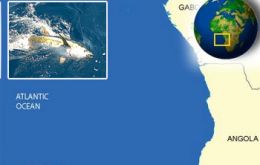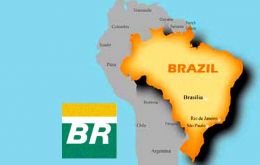MercoPress. South Atlantic News Agency
Stories for February 2009
-
Sunday, February 22nd 2009 - 20:00 UTC
Spain readies for Princess Anne coming visit to Gibraltar

Next month's visit to Gibraltar by the Princess Anne could derail the tripartite talks if it is a high profile one, according to a senator from the Spanish ruling party PSOE, reports the Gibraltar Chronicle.
-
Sunday, February 22nd 2009 - 20:00 UTC
Stern warning from PM Brown to UK and global banking

British Primer Minister Gordon Brown has issued a warning to banks in Britain and around the world that they must end risky speculation and resume their traditional role as “stewards” of people's money.
-
Sunday, February 22nd 2009 - 20:00 UTC
Swiss banking secrecy release limited to 8 US clients

Banking details of eight US clients of Switzerland's UBS bank have been sent to US authorities despite a Swiss court order blocking the move reported the Tribune de Geneve. But a request with a greater list of names seems doomed according to Swiss officials.
-
Saturday, February 21st 2009 - 20:00 UTC
Germany approves 50 billion Euro stimulus plan

Germany has approved a 50 billion Euro stimulus plan aimed at boosting Europe's largest economy. The plan was approved by the upper house of parliament, which represents Germany's 16 state governments.
-
Saturday, February 21st 2009 - 20:00 UTC
Brazil's unemployment reaches sever-year high: 8.2%

Brazil unemployment rate in January jumped the most in seven years to 8.2% from 6.8% in December according to the country's national Statistics Agency. The jobless rate is based on Brazil six largest metropolitan areas.
-
Saturday, February 21st 2009 - 20:00 UTC
St. Helena fishery seeks MSC sustainability label

The St Helena pole and line tuna fisheries for yellow-fin, big-eye, albacore and skipjack tuna have entered full assessment for the Marine Stewardship Council (MSC) certificate of sustainability.
-
Saturday, February 21st 2009 - 20:00 UTC
New Zealand calls for adequate regulation of Antarctic tourism

New Zealand called for tighter controls on “inadequately regulated” shipping in the Southern Ocean, after the M/V Ocean Nova cruise ran aground off Antarctica. Although no one was hurt NZ Foreign Minister Murray McCully said the accident highlighted the need for action before there was a disaster in the area.
-
Saturday, February 21st 2009 - 20:00 UTC
Brazilian think tank forecasts second quarter upturn

Brazil has survived the worst of the global financial crisis and could see an upturn as early as the second quarter, the state-funded Institute for Applied Economic Research, or IPEA, said this week.
-
Saturday, February 21st 2009 - 20:00 UTC
Petrobras establishes new oil production record in January

Petrobras average oil and gas production in Brazil during January climbed to 2,219,165 barrels of oil equivalent per day (boe), 4.8% more than a year ago and up 0.7% over December 2008. Oil from domestic fields was 1,922,946 barrels/day, setting a monthly record, 5.3% above the mark set a year earlier and 2.5% more than the December volume.
-
Saturday, February 21st 2009 - 20:00 UTC
Eurozone economies slow sharply in fourth quarter

Economies in the Eurozone, the group of 16 countries that use the Euro, shrank by 1.5 per cent in the last quarter of 2008. This is the region's third quarterly contraction in a row and represents the Eurozone's sharpest slump since the euro was created in 1999.
